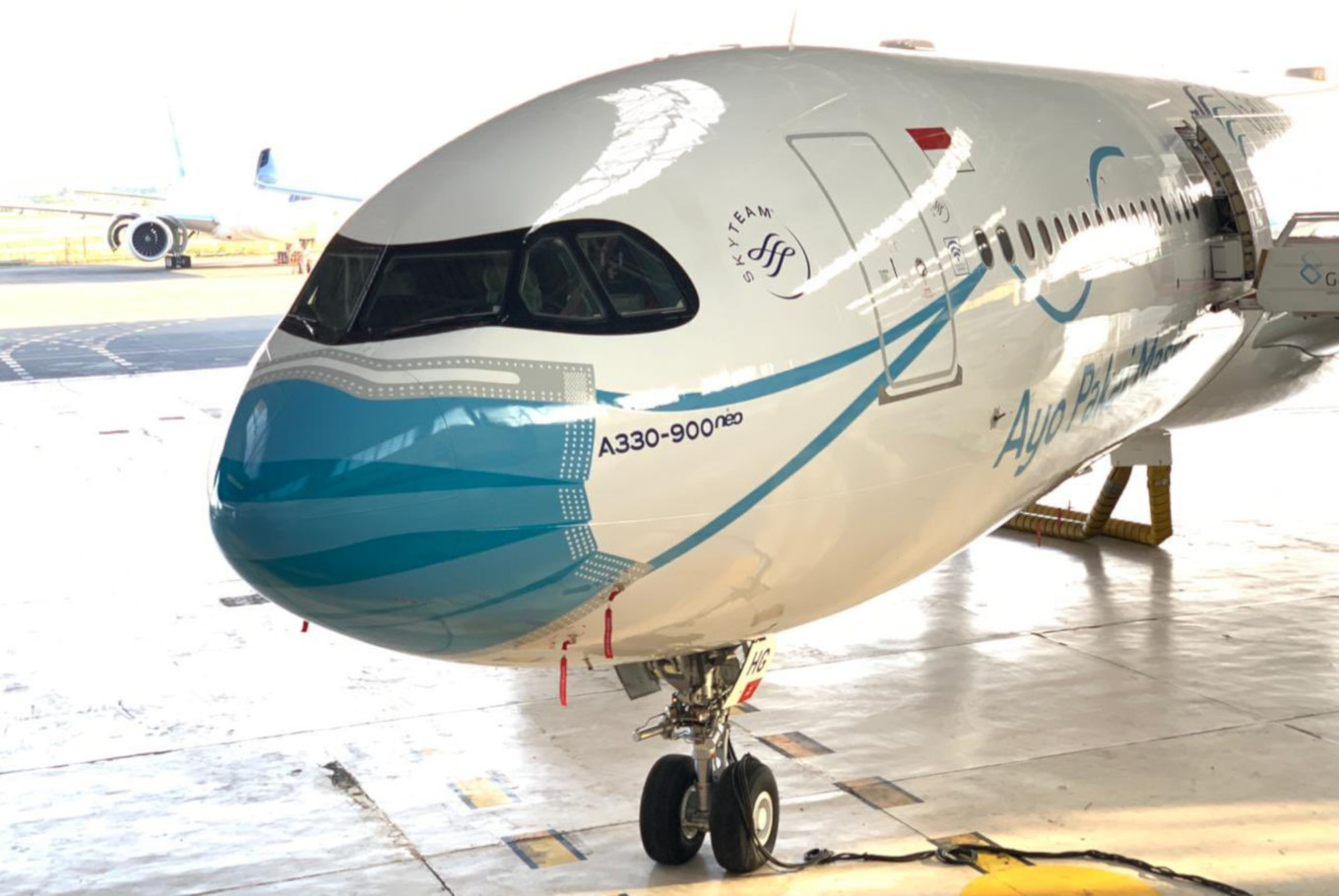Popular Reads
Top Results
Can't find what you're looking for?
View all search resultsPopular Reads
Top Results
Can't find what you're looking for?
View all search resultsToo important to fail
The government should tie whatever forms of additional financial aid to Garuda to strict terms and conditions, imposing tough performance indicators for any disbursement of bailout funds.
Change text size
Gift Premium Articles
to Anyone
N
ational flag carrier Garuda Indonesia, the largest carrier in the world’s largest archipelagic country and one of the few publicly traded state-owned enterprises (SOEs), is certainly too important to be allowed to fail as a result of its severe financial bleeding amid the COVID-19-induced travel restrictions.
Garuda is more than just an airline. It is a critical development entity, which should be anchored on good governance, operational excellence and the prudent use of public funds. Air travel stimulates growth as travelers spend money with tourism service providers, such as hotels, restaurants and land transportation companies, thereby generating business throughout their own diverse supply chains.
Moreover, an active and efficient airline industry boosts competition and trade, facilitates business interactions and foreign investment, and encourages new experiences and the exchange of know-how, connecting people, businesses and ideas across the vast archipelago. This process thus brings about productivity gains across the whole economy.
The problem, however, is that Garuda, like all other airlines across the world, has been forced by the COVID-19 pandemic to operate at only around 25-30 percent of its capacity, thereby suffering severe financial losses. This financial bleeding will not stop until the pandemic is fully controlled and air travel restrictions are widely eased, which most analysts predict will not occur until late 2023.
Worse still, Garuda also carries a burden left behind by the previous bad management, which was fired in December 2019 for running a smuggling ring, a debt overhang of almost US$5 billion, questionable plane leasing costs that took up to 27 percent of its revenues and many other forms of inefficiencies.
Both the government, as the controlling shareholder, and the management have begun drastic cost-cutting measures, including reducing the size of the Garuda fleet and staff and renegotiating its leasing costs, which analysts say are the highest within the industry. The government should back up Garuda in forcing suppliers to cut procurement costs that are unusually high as a result of malfeasance and should encourage other state or government creditors to reschedule their loans.
But the government should tie whatever forms of additional financial aid to Garuda to strict terms and conditions, imposing tough performance indicators for any disbursement of bailout funds. The gradual process by which the government disbursed the Rp 8.5 trillion ($560 million) in convertible bonds it committed to Garuda recently was an effective way of keeping the management on their toes in following the government directives. Latest reports said only Rp 1 trillion of the convertible bonds had been disbursed because Garuda had failed to meet the performance indicators. But the indicators should be open for review due to the uncertainty about the COVID-19 infection rate.
The main purpose of the bailout is to enable Garuda to serve its function as a critical national development entity and to eventually turn it into a profitable commercial entity. But until the pandemic is brought under control and travel restrictions are eased, Garuda will serve mostly as public infrastructure to serve the strategic interests of the state in enhancing the process of domestic economic integration.









